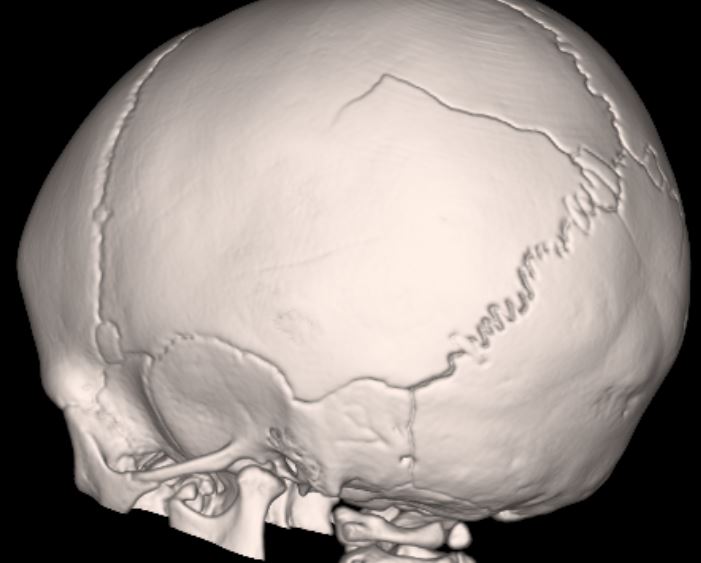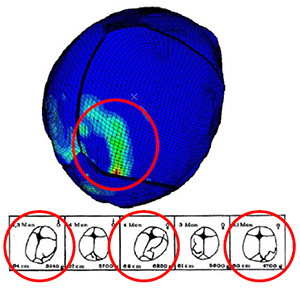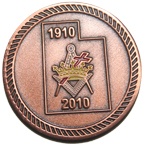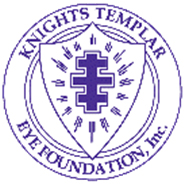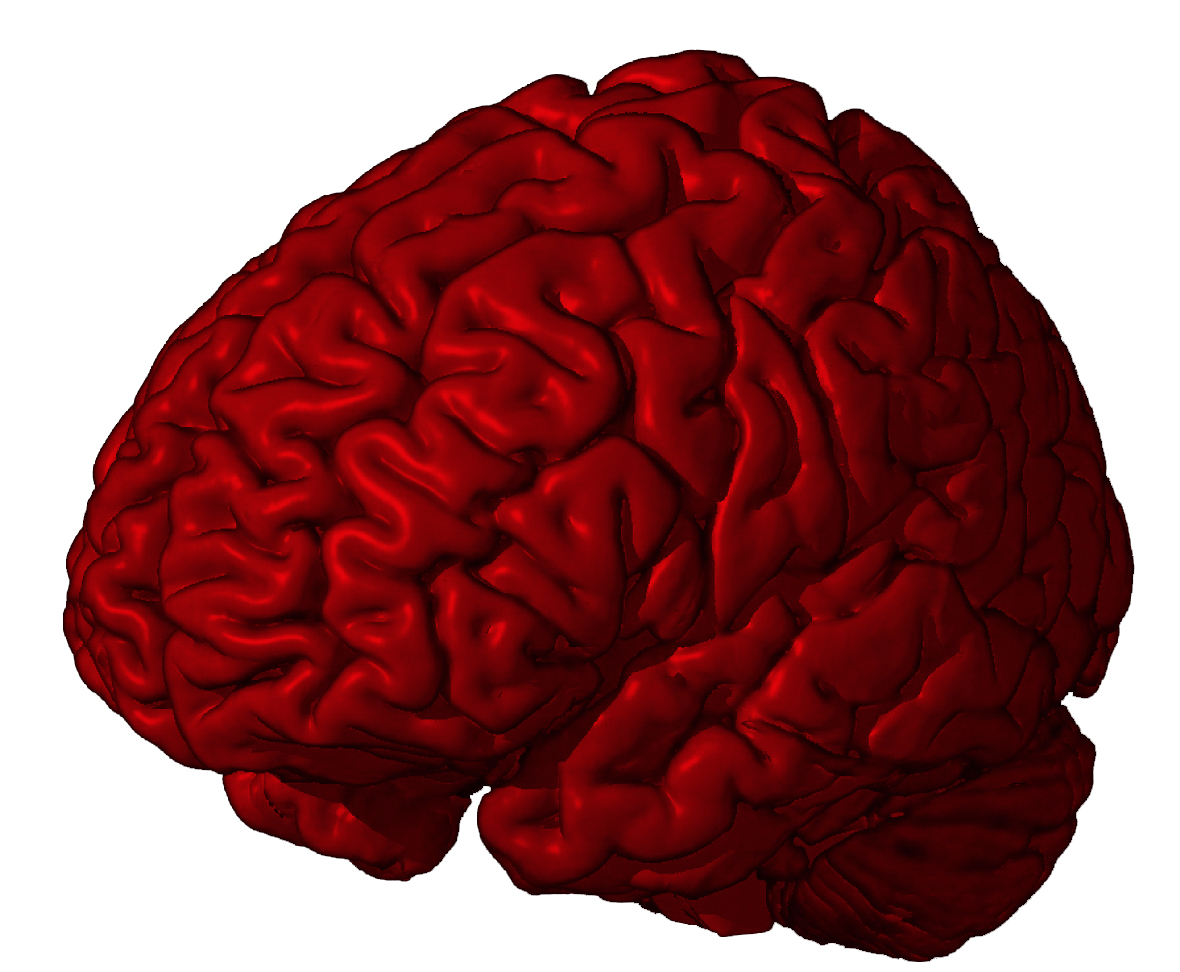Dr. Coats recently received NSF funding to investigate progresssive damage at the brain-skull interface. The study involves high-rate testing and imaging of repeated loading in the subarachnoid trabeculae and blood vessels. Constituitve formulations of damage progression will be created and integrated into our multi-scale computational framework to predict progresssion of brain strain during repeated head...
Continue readingCoats and Spear Receive DOJ Funding for Skull Fracture Prediction
The Coats lab received a $557K award from the Department of Justice for Phase 1 of their project to investigate the effect of skull thickness variability on skull fracture patterns in infant. This project, in collaboration with Dr. Ashley Spear from the Multiscale Mechanics and Materials Lab, will characterize skull thickness variability across the...
Continue readingDOJ Funds Skull Fracture Research
The Department of Justice recently awarded the lab funding to characterize the fracture mechanics of infant cranial bone. Dr. Coats (PI), in collaboration with Dr. Ashley Spear (mmm.mech.utah.edu) and Dr. Susan Margulies (UPENN), will develop a computational framework to predict skull fracture patterns following head impact in infants. The work will involve microscale characterization of the fracture...
Continue readingCoats Named University Nominee for David Mahoney Neuroimaging Award
The David Mahoney Neuroimaging Award is a grant program led by The Dana Foundation aimed to support research to determine how the human brain functions normally and/or with disease using novel imaging techniques. Dr. Coats’ application, Subarachnoid Microstructural Damage as a Biomarker for Mild TBI, was selected to represent the University of Utah in...
Continue readingNew Funding to Mitigate Risk of Concussion
The Smart and Connected Health Program through the National Science Foundation recently awarded our team (in collaboration with several others) a grant titled Reducing Traumatic Brain Injury Risk with Smart Collision Detection and Mitigation. The grant began September 1, 2016 and will be focused on ,developing technology to better sense head impact information (velocity, direction), alert...
Continue readingNIH Grant Awarded to Investigate Vitreoretinal Adhesion Changes with Age
The National Eye Institute at NIH recently awarded our group a two-year R21 grant titled Quantitative Regional Analysis of Vitreoretinal Adhesion with Age. The grant began March 1, 2016 and will be focused on elucidating mechanisms of adhesion at the vitreoretinal interface, and quantifying how those mechanisms change with age. The data will be...
Continue readingKnights Templar Check Presentation
Following a seminar titled Pediatric Ocular Mechanics: The Elephant in the Room, the Utah Commandery of Knights Templar presented a check to the Pediatric Injury Biomechanics Lab on behalf of the Knights Templar Eye Foundation. The check will support research characterizing the material properties of pediatric ocular tissues. It’s our hope that these data...
Continue readingDOD Awards $1 Million VPR Grant
The Department of Defense Vision Research Program has awarded the lab a $1 million dollar grant to investigate long term ocular injury from blast exposure! The interdisciplinary 4-year project will investigate ocular trauma using clinical evaluations and experimental animal models. The project will support 2 graduate students for 4 years. We are very excited to...
Continue readingKnights Templar Early Career Grant
The Knights Templar Eye Foundation has generously awarded Dr. Coats with an Early Career Grant for Pediatric Ophthalmology Research. The funds will be used to set the foundations for characterizing pediatric ocular material properties. A presentation of the check will occur sometime in June for a grant start date of July 1. The award...
Continue readingWonderful Month of Funding
Great news this month! TWO small grants were awarded! Pediatric TBI from repetitive head rotation was funded by the generous support of the Primary Children’s Medical Center Foundation.Quantification of collagen dissolution in the immature eye from plasmin protealase was funded by the generous support of the University of Utah Research Foundation. Both grants will provide funding for preliminary data...
Continue reading

